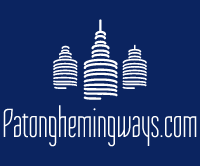In the hospitality industry, the reservation process is critical for a successful business. It requires an efficient and effective system to ensure that all customers have a pleasant experience when making their reservation. Technology can be leveraged to enhance the reservation process and make it easier for customers to book their stay. This article will discuss how to use technology to improve the reservation process.
Benefits of Leveraging Technology for the Reservation Process
The use of technology in the reservation process is becoming increasingly popular, as it offers many significant benefits.Here we will discuss the various benefits of leveraging technology for the reservation process in greater detail:
- Improved Efficiency: Leveraging technology for the reservation process can help to improve efficiency in a number of ways. Automation can be used to quickly process customer requests, allowing them to be handled more quickly and efficiently. Technology can also be used to reduce manual work, eliminating the need for tedious and time-consuming tasks. Furthermore, technology can help to improve accuracy, reducing the chances of errors being made. Read more about Booking System Security Strategies here.
- Enhanced Customer Experience: Technology can also be used to enhance the customer experience. By leveraging technology, businesses can provide customers with a more personalized experience, tailoring the process to their specific needs. Technology can also be used to provide customers with more information, helping them to make better informed decisions. Additionally, technology can be used to provide customers with additional features, such as online booking and payment options.
- Increased Automation: Automation is one of the key benefits of leveraging technology for the reservation process. Automation can be used to quickly and accurately process customer requests, eliminating the need for manual effort. Automation can also be used to streamline complex tasks, such as generating reports and emails, allowing them to be completed with minimal effort. Furthermore, automation can be used to speed up processes, allowing customers to get their requests fulfilled faster.
Examples of Technology Used for the Reservation Process
The first step in the reservation process is to contact the venue or property to check availability. Once availability has been confirmed, the customer can then proceed with booking the reservation by providing payment details and any other relevant information. The most commonly used software for reservation systems are hotel management software, booking systems, point of sale (POS) systems, and web-based reservation systems. To help manage the reservation process, technology has been developed to assist in the efficient management of data, communication and customer service. Examples of technology used for the reservation process include Automated Reservation Systems, Online Booking Systems, for example SimplyBook.me, and Intelligent Chatbots.
- Automated reservation systems are designed to streamline the reservation process and make it easier for customers to make reservations. These systems are designed to allow customers to quickly and easily make a reservation and also provide customers with access to additional services such as payment, cancellations and changes. Automated reservation systems also allow customers to view available rooms and make changes to their reservations.
- Online booking systems are popular amongst hospitality organizations because they allow customers to make reservations quickly and easily. Online booking systems are designed to allow customers to search for available rooms and make a reservation in a matter of minutes. Additionally, online booking systems allow customers to view their reservation details and make changes to their reservation.
- Intelligent Chatbots are artificial intelligence systems that are designed to assist customers in the reservation process. These systems are designed to provide customers with real-time assistance and provide customers with answers to their questions. These chatbots are designed to understand customer queries and provide accurate and helpful answers. Additionally, these chatbots are designed to provide customers with access to additional services such as payment, cancellations and changes.
Challenges Associated with Leveraging Technology for the Reservation Process
robot
There are also some challenges associated with leveraging technology for the reservation process that must be taken into consideration. These challenges include high implementation costs, the need for constant updating, and reduced personal interaction.
- High Implementation Costs is one of the main challenges associated with leveraging technology for the reservation process. The costs associated with implementing and maintaining new technologies can be quite high, and this can be especially difficult for smaller businesses to manage. Additionally, even after the initial implementation costs, there will likely be ongoing maintenance costs that need to be taken into account.
- The need for constant updating is also a challenge when leveraging technology for the reservation process. As technology continues to evolve, it is important to stay up to date with the latest applications and software in order to ensure a seamless and efficient customer experience. This can result in additional costs and time needed to stay up to date with the latest advancements in technology.
- Finally, another challenge associated with leveraging technology for the reservation process is reduced personal interaction. Although technology can streamline the process and make it more efficient, it can also lead to a lack of personal connection between the customer and the business. This can make it difficult to build relationships with customers and provide a personalized experience.
The implementation of technology in the reservation process can greatly improve the customer experience and help businesses increase their bottom line. By utilizing modern tools such as online booking systems, mobile apps, and automated chatbots, companies can streamline the process and make it faster, more secure, and easier for customers to book their appointments. By leveraging technology to enhance the reservation process, businesses can improve customer satisfaction, reduce overhead costs, and drive more revenue.
The most commonly used software for reservation systems are hotel management software, booking systems, point of sale (POS) systems, and web-based reservation systems.
The first step in the reservation process is to contact the venue or property to check availability. Once availability has been confirmed, the customer can then proceed with booking the reservation by providing payment details and any other relevant information.

